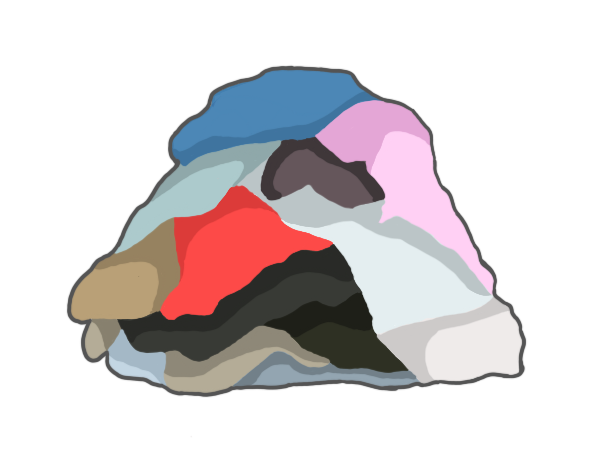Almost every teenager has been online shopping at least once in their life; shopping on websites like Temu, Shein and most definitely Amazon. As a high schooler, who would not be compelled to do so? It is cheap, quick and easy. With one touch of a button, an order can be placed. Nobody really thinks about the effect shopping online has on the economy or on small businesses. Society is so influenced by big corporations that family-owned businesses are soon going extinct. No mom-and-pop shops, no small coffee shops and no stores with homemade plushies. If online shopping continues to grow as it is currently, everything is soon going to be run by large corporations.
Never knowing when their last day is going to be, so many small business owners yearn for just one more customer to pop into their store. They wonder if they will make enough for dinner. While this is not always the case, for most, it truly is. That is what supporting large businesses is causing. People are hurting the hurt, supporting the hungry and praying for the downfall of others, just for a t-shirt that costs two dollars.
When shopping at a small business, one can find hand-designed items that are made with pure love, built with superb quality and capable of lasting generations. When shopping with big online businesses, one may find themselves purchasing items with low quality that tear easily and are stingy.
When talking about online shops such as Temu and Shein, many can correlate it with the term “fast fashion”, meaning inexpensive items that are mass-produced in factories. This leads to most items being cheaper than they would be at a normal business. Since these clothing items are mass-produced, they are ready to go out to customers almost immediately, which is where the convenience comes in. Since your purchase can ship to your doorstep in a matter of days, people are more likely to buy the product.
Not only does fast fashion allow people to buy many clothes for cheap prices, it also causes a mass overload of clothing items. There are warehouses around the world that house piles of clothes. Some clothes even end up in landfills, often taking more than 200 years to decompose. They leave horrendous amounts of waste that also affects the environment. The dyes from these clothes leak toxic chemicals into the ground, water and soil. Many of these clothes could have been re-worn or recycled instead of being tossed in the trash.
Additionally, many large corporations set up factories in third-world countries sothe businesses do not have to pay employees a certain minimum wage. This allows these large companies to charge less for their items. Many users are not aware of the damage that they are causing with a simple purchase on these websites. Along with that, many of these corporations not only underpay their workers, but they also overwork and abuse them, knowing that they need even the slightest amount of money.
There have even been numerous reports from former workers saying that these corporations don’t give them nearly enough of a break. Most employees work around 12-hour shifts. The same goes for big-name stores, like American Eagle and Walmart. They work their employees a large amount of hours, knowing that most of them are teenagers or underpaid for their efforts.
Another factor is that most big companies are extremely inflexible. As a teenager, schedules tend to be pretty busy and sporadic. Some teenagers may have schedule conflicts, such as sporting events and mandatory appointments. When working at a small business, there is much more flexibility in the work schedule. Along with that, many small businesses are not open all days of the week or during extreme hours. This makes a small business an excellent place for high school students to work.
There are so many more positives to both shopping and working at a small business. Although the items may not always be the cheapest, they come with superb quality. Working at a small business allows flexibility as well. The reality is that corporations hurt the world’s economy and people who own their own businesses.



